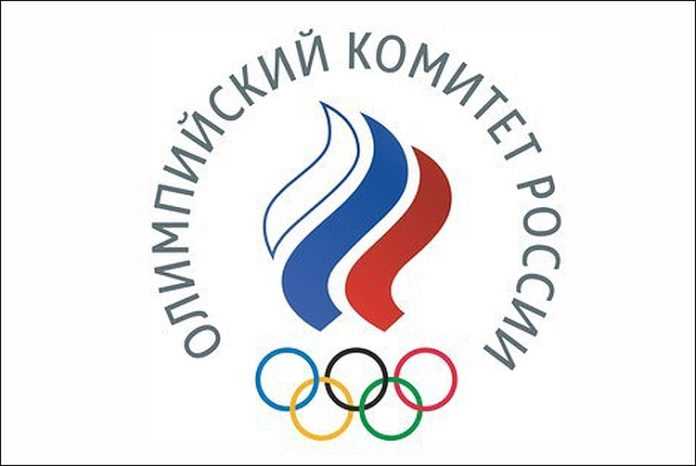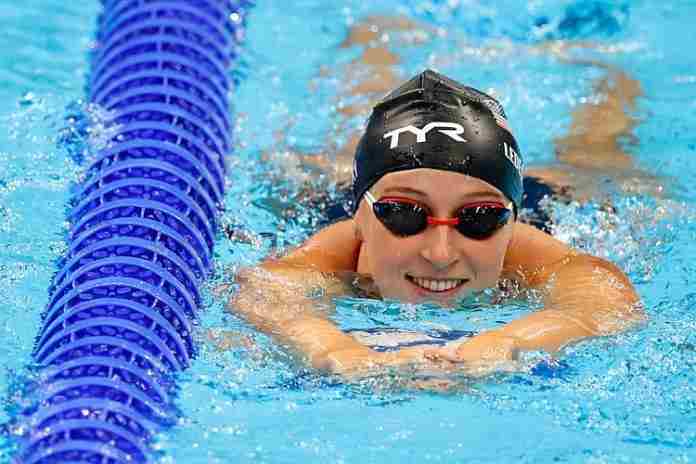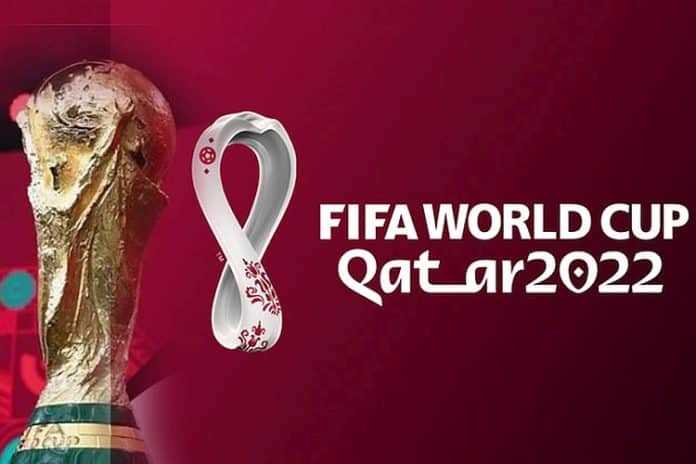/It’s a pleasure to present this guest column by one of the most knowledgeable observers of the Olympic Movement, Britain’s David Miller. For more than 50 years, the former English footballer has covered the Olympic Games and the sports within it, including 15 years as the Chief Sports Correspondent of The Times of London, with stints at the Daily Express and the Daily Telegraph. Author of books on athletics, football and the Olympics, he was Official Historian of the IOC from 1997-2018. His opinions are, of course, his own alone./
The perceived ambition of Vladimir Putin is to recreate the empire of Peter the Great (1672-1725). We should recall that the resplendent Tsar in 1718 had his son and heir Alexei tortured to death … for being disloyal. Five hundred years on, Russia’s generic psychological deformity remains: mounting evidence emerges of tortured Ukraine civilians.
Alarm at Olympic HQ in Lausanne intensifies, President Thomas Bach alert to the potential – if Russia/Belarus are inevitably excluded from Paris ’24 – for a breakaway echo of the USSR era of Spartakiads: multi-sport events originated by the Red Army 1923-37, then regular festivals in parallel with the Olympic Games 1956-91, most notably the Friendly Games of 1984 for those boycotting Los Angeles.
The Russian threat poses disintegration of Bach’s idealistic ‘universality’ of all nations, championed by the United Nations. The ancient Greek tradition of military truce during a Games was feigned to be upheld during the Beijing Winter Games early this year: a strategic deceit by Russia to stall global opinion for a few days. Last week, the International Olympic Committee’s desperation was evident with the blatant appeal, by Vatican clerics together with Bach, “to seek peaceful solution to all conflicts.” For Putin, truce is for the birds.
Despite the continuing appalling war crimes in Ukraine, with torture/assassination of civilians by retreating Russian soldiers, perhaps Bach should not over-estimate latent Russian Olympic rebellion, attempting to keep the nation emotionally on side: suspending neither Russia’s National Olympic Committee nor their IOC Members, while ‘protecting’ Russian athletes by requesting International Federations to exclude them from competition at which ‘they might be insulted’.
I discussed the issue with Dick Pound, the IOC’s senior member. The Canadian lawyer and Olympic swimmer doubts if a Russian-led exodus could commercially survive. He observes:
“Thomas would like to keep Russian athletes ‘inside the camp’, for global integration, believing mute athletes are innocent of political and military intrigue. Yet not all of them are. And it has to be accepted that in an outlaw country, ordinary citizens have to pay the price for illegality.”
Pound should know: indirectly himself the emotional victim of political issues. Delegated in 1999 by then-IOC President Juan Antonio Samaranch to head the legal investigation into voting bribery allegations in Salt Lake City’s Winter Games election in 1995 for 2002, Pound’s ensuing suspension/dismissal of a dozen Members inevitably embedded resentment among IOC colleagues; relegating Pound to third place in the Presidential election of 2001 … which he might otherwise have won. It was Pound’s constitutional revision commission, under elected Jacques Rogge, which implanted many constitutional reform principles then evident in Bach’s Agenda 2020 when he was elected in 2013.
“A Russian breakaway is certainly possible,” Pound reflects. “But if you exclude yourself from an idealistic arena, it’s inevitably self-defeating. You look bad. A rekindled Spartakiad would have no revenue, no momentum, no magic. In the sporting environment, if a nation or individual tumbles off stage, is alienated, then only if they reassemble are they welcomed back. Russia must face that reality. Yes, the Olympic Games welcomes everybody, but not an outlaw state.”
Leaving aside Russia’s exposed institutional drug manipulation of 2011-14, which poisoned the Games of London 2012, Sochi 2014, Rio 2016 and Pyeongchang 2018, recorded history has contaminated the nation’s inestimable evolving impact upon Europe. My memories of exhilarating Russian sports achievement – from Moscow Dynamos’ post-World War II enchantment of London, through Vladimir Kuts, a myriad of performers in athletics and the Davis Cup, plus the intellectual charm of Olympic officials such as Mikhail Bobrov, legendary hero of the Leningrad/St. Petersburg siege, and of Vitaly Smirnov, 60-year totem of Russia’s NOC – are profound. Yet ultimately whom can one trust, within the complex national characteristic of entrenched misinformation espionage? Minds as corrupted as Stalin’s or as inspirational as Tchaikovsky or Solzhenitsyn.
Aware of totality of corrective political indoctrination came when taking the Trans-Siberian Railway to Tokyo ’64. During a train-change at Siberian capital Khabarovsk, the guide for my compulsory two-hour sightseeing tour – enabling KGB to search my hotel luggage – charmingly but categorically denied that Britain and USSR “were united in World War II”. Conversely, neither would she have been aware of the horrific Katyn massacre – ordered by Lavrentiy Beria, Stalin’s diabolical head of NKVD Security – of 22,000 Polish officers. My mother, a 17-year-old escaping a staid Victorian family in which women were irrelevant, innocently adored everything Russian when enlisting with an immigrant Belarus orchestra fleeing demonic Bolshevik revolutionaries.
My first direct view of Soviet extremity was as an unsuccessful member of the UK football squad for Melbourne ’56: the Games blotched by Soviet invasion of Hungary, students versus tanks on the Danube’s historic Gellert Bridge transferring to Melbourne’s water polo pool. A subsequent close friend Istvan Agics, young journalist reporting the Soviet horror, antagonised puppet communist premier Imre Nagy by confronting airport security to gain my entry, without visa, to scrutinise England’s imminent famed opponents in World Cup ’62. Several years later, the secret police finally nailed him: a faked car crash on the river’s idyllic Margaret Island … his widow presented with the derelict vehicle but not the body. That is totalitarianism.
Onwards trundled the world’s would-be integrated Olympics: Alexander Dubcek’s Prague Spring democracy uprising of 1968, likewise crushed by Soviet tanks, with the symbolic public suicide by torch of Jan Palac and the domestic dehumanising of fellow protestor and iconic Olympian Emil Zatopek. No impediments, of course, to Soviet collection that year of 90 medals at Mexico ’68, Cold War tensions thankfully eased by JFK having averted the Soviet/Cuban missile crisis six years earlier.
As the epitome of civil conduct within the free world, the Olympic emblem bravely fluttered through the Seventies, entrenched opposing political principles sparking boycotts in 1980-84. Yet Communist indoctrination was faltering: the bravado of Poland’s striking Baltic shipyard workers in the Solidarity Movement accelerated Kremlin fissures. I was the only UK journalist in 1990 at Gdansk’s Solidarity Games, presenting The Times 200th anniversary memento to Lech Walesa, iconic motivator of “the revolution without a broken window”. Within a year the Berlin Wall and Moscow had crumbled.
Brief rejoicing with reformative Gorbachev. Yet subversive, KGB-disciplined Putin emerged to reinstate corrupt, now capitalist, totalitarian rule. The aura of Beria’s evils re-emerged; unattributed assassinations on the street, political lockdowns, empire lust, reviving the dictum of 19th-century French historian Astophe de Custine: “Russia propagates tyranny as palliative to anarchy, despotism an endemic gene.” Following Afghanistan, heroic Ukraine is the latest victim: Putin’s ‘black death’ demands banishment from Paris ’24. Be warned, would-be African admirers such as Mali and Burkino Faso.
Comments are welcome here and or direct to David Miller here.
/David Miller’s biographical account of Thomas Bach’s presidency, ‘Igniting the Games’ is available from Pitch Publishing, £12.99/

























